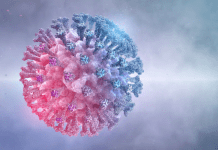Gastroesophageal reflux (often referred to as just “reflux,” “GERD” or even “heartburn”), is defined as the backflow of food or stomach acid from the stomach up into the esophagus and is a condition many of us have likely experienced. In fact, up to 25% of the general population is said to suffer gastrointestinal conditions resulting in heartburn at least one time per month.1
Frequent bouts of heartburn or acid reflux could be a signal that other health issues are occurring in the body, and even more specifically in the gut
The Acid Reflux – Gut Dysbiosis Connection
Dysbiosis is a condition that occurs when there is an imbalance between good bacteria and bad bacteria in the gastrointestinal tract. Acid reflux and gut dysbiosis are linked. The first is that heartburn or reflux actually might be a symptom of an unbalanced gut microbiome. In fact, this reflux could be your body trying to tell you that something bigger is happening in your body that needs to be addressed.
Acid reflux can be caused by gut dysbiosis
Your frequent bouts of heartburn might be your body telling you bigger things are happening in your body, specifically in your gut. The catchall term ‘leaky gut’ is used when we have persistent symptoms of gas / bloating, constipation, diarrhea, and even indigestion, heartburn or GERD and any of these symptoms are a sign of an imbalance of beneficial bacteria in the gut. It is most common for acid reflux to be viewed of as an excess amount of stomach acid, but in fact, it is usually the opposite – not enough acid to digest food is a major contributor to leaky gut, which can influence your digestive health.
Ways to Support Your Gut & Reduce Reflux Symptoms
Avoid trigger foods & drinks
Some foods and drinks can exacerbate reflux symptoms. When dealing with a bad stretch of heartburn, consider eliminating carbonated beverages, alcohol, caffeine, coffee, acidic juices & sauces, and spicy foods.
Increase probiotics
It’s always good to incorporate probiotic-rich foods into your day but you should consider maintaining a healthy microbiome with a daily probiotic supplement
Optimizing Your Stomach Acid
Having enough stomach acid is essential for properly digesting your food and making sure levels of bad bacteria stay in check. In fact, it is believed that too little stomach acid might have links to Small intestinal bacterial overgrowth
Rest & Digest
In general, slowing down and being more mindful of eating can help with reflux. Try to avoid eating on-the-go or in a frantic and stressed state of mind. Additionally, stop eating 2-3 hours before bed to allow your body ample time to fully digest your last meal and prevent heartburn as a result of lying down and trying to sleep.
Doctor name: Dr.GOBIN Seewooshankar
Designation: General Medicine-RCP MD (Doctor of Medicine)
Contact No: 57355187



![[Human Story] Yudishtheer Bhunjun rêve de pouvoir remarcher un jour](https://sundaytimesmauritius.com/wp-content/uploads/2024/02/Human-story-218x150.jpg)


![[CONTENU SPONSORISÉ] COVID-19 and Gut Health](https://sundaytimesmauritius.com/wp-content/uploads/2021/05/COVID-19-Gut-Health-Connection-Featured-218x150.jpg)
![[CONTENU SPONSORISÉ] What is Gastric Reflux? How can it be managed?](https://sundaytimesmauritius.com/wp-content/uploads/2021/05/Dr.-Sibartie-218x150.jpg)

![[Mer Rouge] Le Mouvement Anti-Pollution s’oppose à l’implémentation d’une raffinerie de graphite](https://sundaytimesmauritius.com/wp-content/uploads/2024/04/Mer-Rouge-150x150.jpg)



![[Mer Rouge] Le Mouvement Anti-Pollution s’oppose à l’implémentation d’une raffinerie de graphite](https://sundaytimesmauritius.com/wp-content/uploads/2024/04/Mer-Rouge-100x70.jpg)

